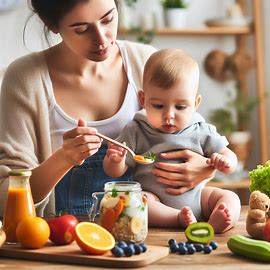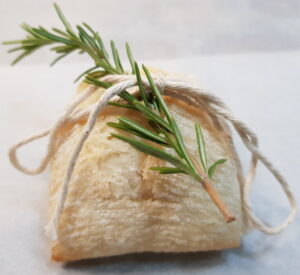Focusing On Baby Food Toddler Nutrition, Digestive Health, Using Natural And Organic Ingredients
The world of baby and toddler nutrition is buzzing with changes. More and more parents are getting into what’s going on in those tiny food jars and packets. We’re seeing a big shift towards foods that are not only safe but also stuffed with good stuff and new flavors to keep those little taste buds happy.
A major player in this game is aligning with international safety standards. Take Little Spoon, for example. They’re stepping up by adopting European Union-like standards, which means they’re checking for over 550 potential nasties, making sure what’s on the shelf is as safe as it gets. It’s like setting the bar high so parents can breathe easy knowing their kiddos are mu

nching on something clean.
Besides safety, there’s a rising trend in giving babies a bit of a diverse flavor adventure early on. No more plain and boring. Companies are collaborating, like Little Spoon partnering with Graza Olive Oil, to offer Mediterranean-inspired meals. It’s about giving kids a taste of different cultures and the healthy goodness of things like olive oil, which packs some solid healthy fat punches.
As a parent, all this means there’s a lot more to consider than just popping open a jar. It’s about embracing these shifts and finding the right products that align with your own values and expectations for what nutrition should look like for your child. Fortunately, brands are really listening to parental demands and delivering options that promise both quality and variety.
Digestive Health as a Vital Aspect in Toddler Nutrition
When it comes to our kids’ tummies, keeping things happy and healthy is a big deal. Digestive health is getting a lot of attention in toddler nutrition, as more parents realize just how crucial it is. It’s not just about avoiding tummy aches; it’s about setting the groundwork for overall well-being.
Recent studies out of the Northern Territory have highlighted a growing belief among parents that they could do better with their kids’ diets, particularly in supporting digestive health. This awareness is a great step forward, and resources like the Alula Toddler Tummies Cookbook are here to help by offering recipes loaded with prebiotic-rich foods. These little heroes feed the good bacteria in the gut, promoting a balanced digestive system.
Integrating foods like yogurt, bananas, and whole grains can make a big difference. Not only do they help build a healthy digestive tract, but they also introduce a range of flavors and textures to a toddler’s diet — a win-win scenario.
Addressing digestive health isn’t just about adding new foods; it’s also about making informed choices. That means checking labels and selecting products designed with digestive health in mind. From interactions with fiber to how their bodies handle sugar, it’s about looking at the bigger picture and making choices that benefit our little ones’ gut health.
The Rise of Natural and Organic Ingredients in Baby Food
Parents are increasingly seeking out baby foods that are not just nutritious but also packed with natural goodness. There’s a growing shift towards products made with organic, non-GMO ingredients free from any added sugars, preservatives, or artificial flavors. This trend speaks volumes about parents being more health-conscious and wary of what’s going into their child’s food.
With so much chatter around hidden sugars in seemingly healthy snacks, transparency has become a top priority. Brands are reacting by providing clear and honest labeling, so parents know exactly what’s in each spoonful. It’s not just about avoiding sugar spikes; it’s about encouraging habits that lead to a balanced diet early on.
Imagine reaching for a product like Raw Generation’s Sippers, which offers wholesome juices packed with fruits and veggies. For busy parents always on the go, such options mean convenience without sacrificing nutrition. It’s about bridging the gap between health and hustle, offering easy solutions that don’t skimp on quality.
For those looking to embrace this organic wave, it’s helpful to look for certifications and research different companies’ sourcing practices. Exploring options and knowing what each brand stands for ensures you’re choosing foods aligned with your nutritional goals for your child.











5 comments